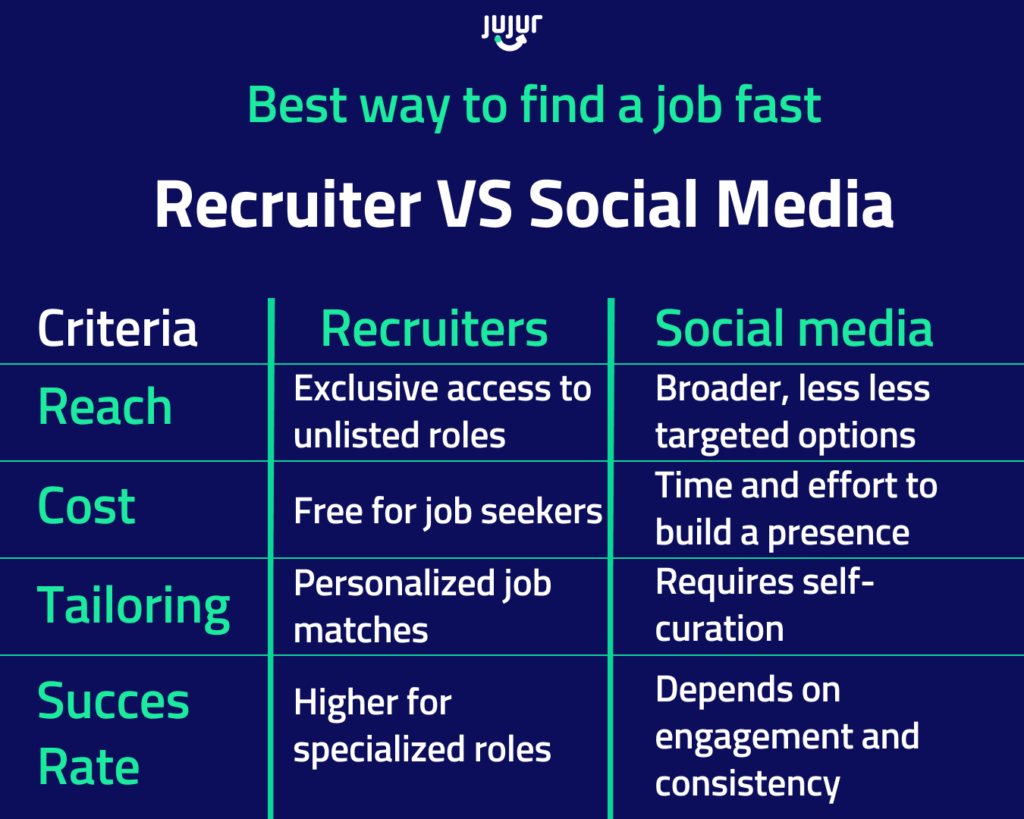When you’re considering relocating to work abroad, one of the first things that can cause hesitation is the language barrier. However, what if you could find a destination where English is not only widely spoken but is the primary language used in business, government, and everyday life?
We are experienced recruiters helping professionals navigate international career opportunities. We understand how crucial it is to find a city that offers both career growth and an easy transition. In this guide, we’ll walk you through the best English-speaking cities where you can not only find rewarding job opportunities but also experience seamless integration into local culture.
Top Benefits of Moving to English-Speaking Cities
Relocating to an English-speaking city offers a number of distinct advantages, especially for professionals looking to advance their careers without facing the added challenge of language barriers. Here are just a few of the benefits:
Seamless Communication
One of the most immediate and obvious benefits is the ability to communicate freely in both professional and everyday settings. This is particularly beneficial for expats. It makes everything from negotiating a job offer to ordering food or understanding local laws much easier.
Robust Job Markets
English-speaking cities tend to have more established and diverse job markets with positions available in a wide range of industries, including tech, finance, healthcare, and education. These cities also often attract international companies looking for English-speaking professionals, further enhancing career prospects.
A Vibrant International Community
English-speaking cities attract expats from all over the world, making them hubs of diversity and cultural exchange. This creates a dynamic work environment where networking opportunities are plentiful, whether you’re attending industry conferences, social events, or simply enjoying local cultural experiences.
For many professionals, these benefits are enough to make relocating to an English-speaking city a top choice. But the decision doesn’t stop there. It’s important to identify which city aligns best with your career ambitions and lifestyle preferences.
The Best English-Speaking Cities to Move and Work Abroad
1. Amsterdam: A Hub for Tech and Finance Professionals
Amsterdam is not only known for its picturesque canals and historic charm but also as a thriving business hub, particularly for professionals in the tech and finance industries. English is spoken widely in Amsterdam, with most locals being fluent in the language, making it an ideal destination for expats looking to settle in without facing language barriers.
Amsterdam boasts an exciting international job market, particularly for tech professionals, as it’s home to many well-known startups and major global companies. The finance sector is equally strong, with Amsterdam acting as a key financial center in Europe. As an expat, you’ll find that networking is made easy, and many companies in these sectors actively seek English-speaking talent.
Industries: Technology, finance, creative industries.
Why Move Here? Amsterdam offers a high quality of life, excellent public transportation, and a work culture that values work-life balance. Plus, the city has a growing expat community, which makes it easier to find like-minded professionals.
2. Dublin: The Silicon Valley of Europe
Dublin is a vibrant city that has become a major hub for international business, particularly for those in tech and finance. With companies like Google, Facebook, and Twitter having their European headquarters there, Dublin provides ample job opportunities for English-speaking professionals. It’s no surprise that Dublin is often referred to as the “Silicon Valley of Europe.”
For tech professionals, Dublin offers exciting career prospects, as the city is home to both established global giants and innovative startups. Additionally, Dublin is renowned for its thriving finance sector, offering job opportunities in banking, insurance, and fintech.
Industries: Technology, finance, pharmaceuticals.
Why Move Here? Dublin offers a welcoming environment for expats, competitive salaries, and a relatively low cost of living compared to other major European cities. It’s a city that’s perfect for professionals who want to work in a bustling, international environment while still enjoying a rich cultural experience.
3. Gibraltar: A Unique Blend of Culture and Careers
As a British Overseas Territory, Gibraltar enjoys the status of English as its official language. The city is an attractive destination for those interested in finance, particularly in the realm of offshore banking and investment, and offers unique opportunities in the online gaming sector as well.
Despite its small size, Gibraltar punches above its weight in terms of its economic offerings. The region’s strategic location between Europe and Africa, coupled with its use of English and favorable tax environment, makes it a popular destination for business professionals, particularly those working remotely or in the finance sector.
Industries: Finance, online gaming, tourism.
Why Move Here? Gibraltar offers a high standard of living, a Mediterranean climate, and a laid-back lifestyle. It also provides attractive tax benefits for professionals in finance and tech.
4. Malta: Mediterranean Charm Meets Career Growth
English is one of the two official languages in Malta (along with Maltese). It’s an appealing option for English-speaking professionals. The island nation offers great opportunities for expats, especially in sectors like tourism, finance, and iGaming. Cities like Birkirkara, Saint Julian’s, and Valletta are bustling hubs for industry and innovation.
Malta’s growing iGaming sector is one of its standout features, with numerous international companies setting up operations on the island. Furthermore, Malta has become a prominent financial services hub within Europe. It’s attracting English-speaking professionals looking to work in banking, investment, and insurance.
Industries: Tourism, finance, iGaming.
Why Move Here? With its Mediterranean climate, rich cultural history, and relatively low cost of living, Malta offers a unique blend of career opportunities and a relaxed lifestyle.
5. London: A Global Powerhouse for Professionals
London is undoubtedly one of the most iconic cities for English-speaking professionals. As a global financial and cultural hub, London offers nearly limitless career opportunities. Whether you’re in finance, media, technology, or education, London has an abundant job market that continues to attract top talent from around the world.
The city’s international nature means that you’ll constantly be networking with professionals from diverse backgrounds. And the job market is extremely competitive. If you’re seeking a career that connects you to global companies, London offers unparalleled opportunities.
Industries: Finance, media, arts, technology.
Why Move Here? London’s cosmopolitan atmosphere, excellent job prospects, and vast cultural scene make it one of the top cities to live and work in for English speakers.
6. Toronto: Canada’s Multicultural Magnet for Expats
Toronto is Canada’s largest city and a true multicultural hub. It’s known for its high quality of life, strong job market, and English-speaking environment. Toronto offers job opportunities in a wide range of industries, including tech, finance, and healthcare.
The city attracts expats from all over the world, creating a dynamic, diverse environment. Toronto’s professional community is equally diverse, making it easier to find networking opportunities and connect with like-minded individuals. Furthermore, Canada’s expat-friendly visa policies make the relocation process smoother for professionals.
Industries: Technology, healthcare, finance.
Why Move Here? Toronto offers a high standard of living, excellent public healthcare, and a diverse job market, making it an attractive destination for expats.
7. Edinburgh: History Meets Opportunity
Edinburgh, Scotland’s capital, is a city that beautifully blends history with modern professional opportunities. As an English-speaking city, it’s an ideal place for professionals in the tourism, education, and research sectors. The city is home to several prestigious universities, which create a thriving academic and research-driven job market. In addition, Edinburgh’s cultural and historical significance attracts a significant amount of tourism, providing opportunities in hospitality and event management.
The city’s tech scene is also growing, with various startups and companies in the digital space. While Edinburgh’s cost of living is lower than London’s, salaries remain competitive, and the quality of life is high, with beautiful landscapes and a strong sense of community.
Industries: Tourism, education, research, tech.
Why Move Here? Edinburgh offers a blend of rich history, academic influence, and growing tech opportunities in a more relaxed environment than major English-speaking cities.
8. Valletta (Malta): A Growing Expat Community and Business Hub
Valletta, Malta’s capital, is not only a UNESCO World Heritage site but also a rapidly growing business hub. English is one of the official languages, and the city offers a welcoming environment for English-speaking professionals. Valletta’s job market is centered around industries such as finance, iGaming, and tourism, with numerous international companies operating in these sectors.
The Mediterranean lifestyle, combined with a low cost of living compared to other European cities, makes Malta a popular destination for those looking to balance career growth with a relaxed lifestyle. Additionally, Malta’s expat community is thriving, offering ample opportunities for networking and support.
Industries: Finance, iGaming, tourism.
Why Move Here? Valletta offers a unique mix of professional opportunities in a beautiful, historical setting with a growing expat community.
9. Singapore: A Business and Educational Powerhouse
Singapore, a global financial and business hub, is an excellent choice for professionals seeking English-speaking opportunities abroad. English is one of the official languages, and it’s widely spoken in both business and education. Singapore boasts a dynamic job market, particularly in tech, finance, and education, making it an ideal destination for English-speaking professionals looking to advance their careers.
The city-state is known for its strong economy, low taxes, and clean, efficient infrastructure. With numerous multinational corporations setting up operations in Singapore, professionals can find career growth opportunities in almost every field. Singapore’s diverse expat community also makes it easy to settle in and feel at home.
Industries: Tech, finance, education, healthcare.
Why Move Here? Singapore offers a high standard of living, excellent job prospects, and a well-connected expat network, making it a top choice for English-speaking professionals.
10. Dubai: A Modern Oasis for English-Speaking Expats
While Arabic is the official language in Dubai, English is the primary language used in business and everyday life, making it an incredibly expat-friendly city. Dubai is a global business hub with opportunities across a range of industries, including finance, real estate, tourism, and tech. Many multinational corporations have regional headquarters in Dubai, making it an excellent location for English-speaking professionals.
The city is known for its luxurious lifestyle, high salaries, and tax-free income, making it a desirable destination for many. Dubai also has a large and vibrant expat community, offering a supportive environment for those relocating from abroad.
Industries: Finance, real estate, tourism, tech.
Why Move Here? Dubai offers high salaries, tax-free income, and a cosmopolitan lifestyle, making it a great destination for English-speaking professionals.
11. Hong Kong: A Gateway to Asia for English Speakers
Hong Kong is one of the world’s most international cities, where English is one of the official languages and is commonly used in business and education. The city offers a wide range of opportunities, particularly in finance, tech, and trade. With its position as a gateway to China and other parts of Asia, Hong Kong provides professionals with access to a booming market in Asia-Pacific.
The city also boasts a high standard of living, efficient public transportation, and excellent healthcare. Hong Kong’s multicultural environment makes it a fantastic place for expats, and English-speaking professionals will have no trouble integrating into the local workforce.
Industries: Finance, trade, tech, logistics.
Why Move Here? Hong Kong offers dynamic career opportunities and serves as a strategic hub for professionals looking to expand their network and business reach in Asia.
12. Frankfurt: Germany’s International Finance Center
Frankfurt may not be an English-speaking city by default, but English is widely used in its international finance sector, making it a great option for professionals looking for work in finance and banking. As the financial capital of Germany, Frankfurt is home to the European Central Bank and numerous multinational corporations, offering many job opportunities for English speakers in finance and related fields.
The city is known for its high salaries and relatively lower cost of living compared to other European financial centers, making it an attractive place for expats. Additionally, Germany’s excellent work-life balance, public services, and safety are highly appealing to professionals looking for long-term relocation options.
Industries: Finance, banking, international trade.
Why Move Here? Frankfurt offers competitive salaries, a growing financial industry, and a relatively affordable cost of living compared to other financial hubs.
13. Brussels: The EU Capital for English Speakers
Brussels, the capital of Belgium, is home to numerous EU institutions and multinational corporations, making it a hub for English-speaking professionals working in international politics, diplomacy, and global business. English is commonly spoken, particularly within EU institutions, NGOs, and multinational companies, making it easy for English speakers to find work.
The city’s central location in Europe offers easy access to neighboring countries, and its rich cultural diversity provides a unique experience for expats. The job market in Brussels is robust, particularly for those with expertise in international relations, policy, and law.
Industries: Politics, international relations, business, NGOs.
Why Move Here? Brussels offers a thriving international community, excellent networking opportunities, and a dynamic job market for English-speaking professionals.
14. Lisbon: A Rising Star for English-Speaking Expats
Lisbon, the capital of Portugal, has become an increasingly popular destination for English-speaking professionals. The city’s tech scene is expanding rapidly, with a strong startup culture and plenty of opportunities for software developers, designers, and entrepreneurs. English is widely spoken, particularly among younger generations and in the business world, making it an easy place to live and work for expats.
The cost of living in Lisbon is relatively low compared to other European capitals, and the city offers a high quality of life, with beautiful weather, stunning architecture, and a relaxed pace of life. This makes it an ideal place for professionals seeking career growth and a vibrant lifestyle.
Industries: Tech, startups, tourism, education.
Why Move Here? Lisbon offers a lower cost of living, a thriving startup ecosystem, and a welcoming environment for English-speaking expats.
15. Barcelona: A Tech and Startup Paradise
Barcelona is one of Europe’s most popular destinations for English-speaking professionals, especially those in the tech, startup, and digital industries. While Spanish and Catalan are the official languages, English is widely spoken, particularly in business and among the international expat community.
The city offers a great work-life balance, with beautiful weather, a laid-back lifestyle, and a growing job market in tech, digital marketing, and design. Barcelona’s vibrant cultural scene, excellent public transport, and proximity to the beach make it an attractive destination for professionals looking for both career success and personal fulfillment.
Industries: Tech, startups, digital marketing, design.
Why Move Here? Barcelona offers a dynamic job market, a high quality of life, and a thriving expat community, making it a fantastic option for English speakers in tech and digital fields.
16. Kuala Lumpur: A Growing Hub for Expats in Southeast Asia
Kuala Lumpur, Malaysia’s capital, is an increasingly popular destination for English-speaking professionals. English is widely spoken in business and education, making it easy for expats to integrate into the workforce. The city is home to a growing tech scene, as well as opportunities in finance, education, and healthcare.
Kuala Lumpur offers a relatively low cost of living compared to other Asian cities. This makes it an attractive option for professionals looking to save money while still enjoying a cosmopolitan lifestyle. The city also boasts excellent public transportation and a vibrant cultural scene, offering a unique experience for expats.
Industries: Tech, finance, education, healthcare.
Why Move Here? Kuala Lumpur offers a low cost of living, excellent career prospects, and a diverse cultural experience. It’s a great option for English-speaking expats.
How to Choose the Right City for You
Choosing the right city for relocation involves more than just picking a place where English is spoken. Here are a few key factors to consider:
Industry Fit: Do some research. Find out which industries are booming in each city and determine whether your skills align with these opportunities.
Cost of Living: While some cities offer high salaries, the cost of living can be equally high. Make sure to factor this into your decision-making process.
Cultural Fit: Think about what kind of lifestyle you want. Do you prefer a bustling city like London, or a quieter, more relaxed environment like Malta or Gibraltar?
Understanding these factors will help you make a more informed decision and find the perfect work destination that aligns with both your professional and personal needs.
Take the Leap
The world is full of exciting opportunities for English-speaking professionals. Relocating to a new city can be the key to unlocking your next career chapter. Are you drawn to the high-paced energy of London? Or the more relaxed lifestyle of Malta? There’s a destination that suits your career aspirations and lifestyle preferences.
Whatever you choose as your next destination, we’re here to help you get your foot in the door by finding your next job abroad!

























































































